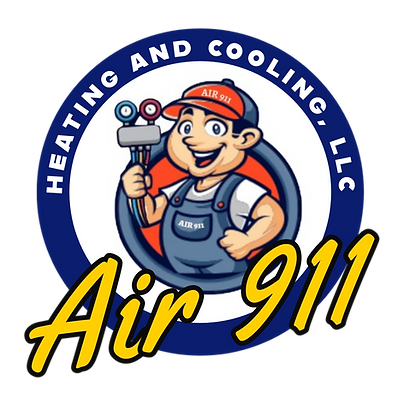Key Factors to Consider When Choosing the Right HVAC Unit for Your Home
- Neal Spurling
- Apr 20
- 4 min read
Choosing the right HVAC unit for your home is more than just a purchase; it’s a crucial decision that impacts your comfort, energy bills, and the overall environment of your living space. With numerous options available, understanding the key factors that influence your choice can simplify this often-overwhelming process. This guide will help you make an informed decision that caters to your specific needs.
Understanding Your Home's Heating and Cooling Needs
To select the right HVAC unit, start by assessing your home's unique heating and cooling requirements.
Evaluate the following:
Home Size: Larger homes typically need more powerful systems. For example, a 1500 square foot home might require a unit with a capacity of about 3 to 4 tons for cooling.
Room Count: The number of rooms will also affect your choice. A multi-room home may require a zoned system to maintain consistent temperatures across spaces.
Insulation Quality: Well-insulated homes retain heat and cool air better, decreasing energy requirements. In contrast, poorly insulated homes might need more robust systems to compensate for energy loss.
Specific climate considerations are also vital. A home in a hot climate may need a more efficient cooling system while a colder region will benefit from a strong heating unit.
Energy Efficiency Ratings
Energy efficiency is key when choosing an HVAC system. Opting for an energy-efficient model can significantly lower your utility bills, often reducing costs by up to 30% annually compared to less efficient systems.
Here are some important ratings to consider:
Seasonal Energy Efficiency Ratio (SEER): Look for a SEER rating of 16 or higher for cooling systems to ensure efficient energy consumption.
Annual Fuel Utilization Efficiency (AFUE): For heating systems, a rating of 90% AFUE means that 90% of the energy used goes to heating your home.
Moreover, ENERGY STAR certification signifies that a system meets strict efficiency guidelines, ensuring you receive the most energy-efficient option available.
Choosing Between Central and Ductless Systems
Next, consider whether a central HVAC system or a ductless system is right for your needs.
Central HVAC Systems: These systems use ducts to distribute air throughout the home. They efficiently heat or cool larger spaces and are ideal for homes exceeding 2,000 square feet.
Ductless Systems: Perfect for homes without ducts or those needing targeted heating and cooling for certain areas. For instance, if you have a sunroom or garage conversion, ductless systems can efficiently manage those spaces without extensive renovations.
The flexibility of ductless systems often results in energy savings of 20% to 30% compared to traditional systems.
Considering the Type of HVAC System
Different types of HVAC systems offer varied benefits. Some options include:
Heat Pumps: These systems are versatile and can provide heating and cooling. They are highly efficient, especially in moderate climates.
Furnaces: Typically found in colder regions, a natural gas or electric furnace heats quickly but may need an air conditioning unit for summer months.
Boilers: Primarily for heating, they work well with homes already using radiators. They can maintain consistent warmth throughout winter.
Air Conditioners: Standalone units effectively cool spaces, often preferred in mild winter areas where heating needs are minimal.
Assessing these types in relation to your home's needs helps pinpoint the best fit.
Budget Considerations
Budget is a significant factor in HVAC decisions.
It's easy to focus solely on the upfront costs, but you should also evaluate operating costs over time. Investing in an energy-efficient system, even if more expensive initially, can save homeowners hundreds of dollars on energy bills annually. For example, if a standard unit costs $4,000, an energy-efficient model may cost $5,500 but could save you $300 a year, recouping your investment in under two decades.
Consider also installation expenses, which can vary based on the complexity of your system and local pricing. Some systems may require extensive ductwork, impacting the overall budget.
Professional Installation
Regardless of the unit you choose, expert installation is crucial.
Incorrect installation can lead to energy inefficiency and costly repairs later on. Working with a licensed technician ensures your system functions correctly and safely. Researching reviews and confirming certifications beforehand can prevent future headaches.
Maintenance Requirements
Regular maintenance is essential for efficient HVAC operation.
Different systems have various upkeep needs. Be prepared for regular filter changes, annual inspections, and timely repairs. For instance, systems may need filter replacements every 1 to 3 months depending on usage, and annual professional tune-ups can extend the lifespan of your unit. Understanding warranty details for parts and service can also provide peace of mind.
Climate Considerations
Your local climate is a pivotal factor in selecting an HVAC system that performs well.
Regions with high humidity and heat typically require robust air conditioning systems. Conversely, areas with cold winters will need heating solutions that can withstand freezing temperatures. For instance, heat pumps can struggle in freezing conditions, so it’s vital to consult local weather patterns and a qualified HVAC professional.
Planning for Future Needs
Consider your future needs when selecting an HVAC unit.
If you plan to expand your home, accommodate more occupants, or increase energy use, opting for a system that can adapt is wise. For example, installing a larger ductless system now could save you time and money later as your home grows.
Making Your Final Decision
Choosing the right HVAC unit for your home involves thoughtful consideration of multiple factors, including your heating and cooling needs, budget constraints, and future plans.
By understanding your home's specific requirements and the various options available, you can confidently select a system that provides comfort and efficiency. Consulting with professionals can offer further insights, ensuring your HVAC choice perfectly aligns with your lifestyle and home environment.


Comments